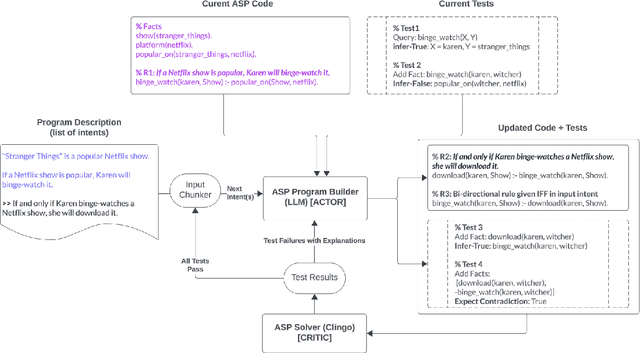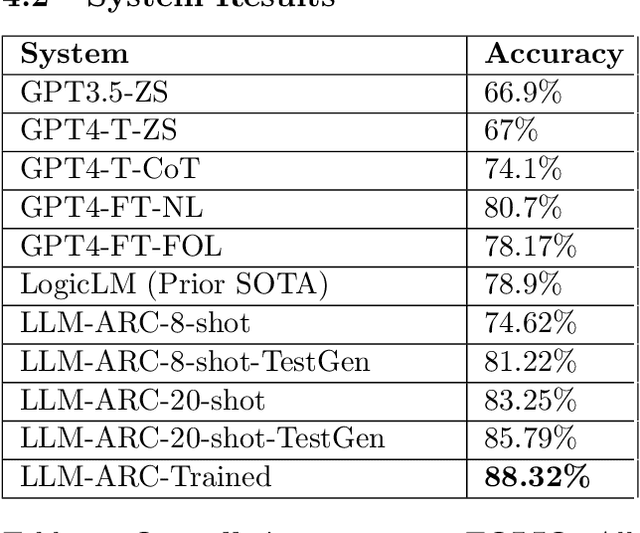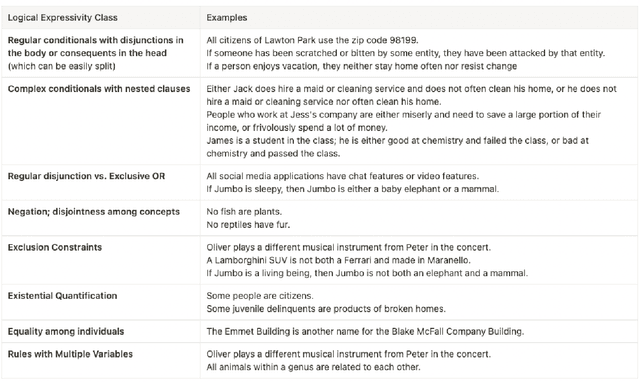Kailash Saravanakumar
Multi-step Inference over Unstructured Data
Jul 08, 2024



Abstract:The advent of Large Language Models (LLMs) and Generative AI has revolutionized natural language applications across various domains. However, high-stakes decision-making tasks in fields such as medical, legal and finance require a level of precision, comprehensiveness, and logical consistency that pure LLM or Retrieval-Augmented-Generation (RAG) approaches often fail to deliver. At Elemental Cognition (EC), we have developed a neuro-symbolic AI platform to tackle these problems. The platform integrates fine-tuned LLMs for knowledge extraction and alignment with a robust symbolic reasoning engine for logical inference, planning and interactive constraint solving. We describe Cora, a Collaborative Research Assistant built on this platform, that is designed to perform complex research and discovery tasks in high-stakes domains. This paper discusses the multi-step inference challenges inherent in such domains, critiques the limitations of existing LLM-based methods, and demonstrates how Cora's neuro-symbolic approach effectively addresses these issues. We provide an overview of the system architecture, key algorithms for knowledge extraction and formal reasoning, and present preliminary evaluation results that highlight Cora's superior performance compared to well-known LLM and RAG baselines.
Multi-step Knowledge Retrieval and Inference over Unstructured Data
Jun 26, 2024



Abstract:The advent of Large Language Models (LLMs) and Generative AI has revolutionized natural language applications across various domains. However, high-stakes decision-making tasks in fields such as medical, legal and finance require a level of precision, comprehensiveness, and logical consistency that pure LLM or Retrieval-Augmented-Generation (RAG) approaches often fail to deliver. At Elemental Cognition (EC), we have developed a neuro-symbolic AI platform to tackle these problems. The platform integrates fine-tuned LLMs for knowledge extraction and alignment with a robust symbolic reasoning engine for logical inference, planning and interactive constraint solving. We describe Cora, a Collaborative Research Assistant built on this platform, that is designed to perform complex research and discovery tasks in high-stakes domains. This paper discusses the multi-step inference challenges inherent in such domains, critiques the limitations of existing LLM-based methods, and demonstrates how Cora's neuro-symbolic approach effectively addresses these issues. We provide an overview of the system architecture, key algorithms for knowledge extraction and formal reasoning, and present preliminary evaluation results that highlight Cora's superior performance compared to well-known LLM and RAG baselines.
LLM-ARC: Enhancing LLMs with an Automated Reasoning Critic
Jun 25, 2024



Abstract:We introduce LLM-ARC, a neuro-symbolic framework designed to enhance the logical reasoning capabilities of Large Language Models (LLMs), by combining them with an Automated Reasoning Critic (ARC). LLM-ARC employs an Actor-Critic method where the LLM Actor generates declarative logic programs along with tests for semantic correctness, while the Automated Reasoning Critic evaluates the code, runs the tests and provides feedback on test failures for iterative refinement. Implemented using Answer Set Programming (ASP), LLM-ARC achieves a new state-of-the-art accuracy of 88.32% on the FOLIO benchmark which tests complex logical reasoning capabilities. Our experiments demonstrate significant improvements over LLM-only baselines, highlighting the importance of logic test generation and iterative self-refinement. We achieve our best result using a fully automated self-supervised training loop where the Actor is trained on end-to-end dialog traces with Critic feedback. We discuss potential enhancements and provide a detailed error analysis, showcasing the robustness and efficacy of LLM-ARC for complex natural language reasoning tasks.
 Add to Chrome
Add to Chrome Add to Firefox
Add to Firefox Add to Edge
Add to Edge